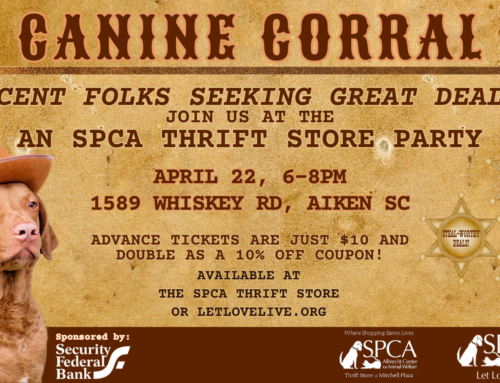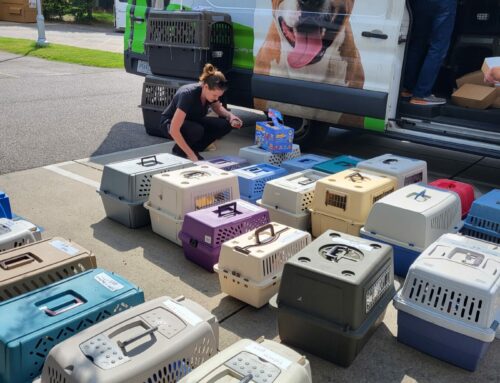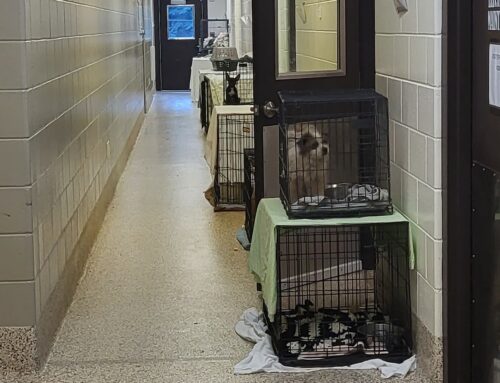By: Claire Roberson, Communications Director
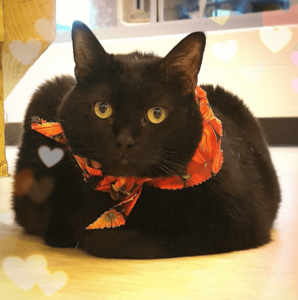
Staff quickly fell in love with this curvy kitty, and the decision was made to adopt her as a shelter cat, where Bonnie still thrives to this day. Staff even started a Facebook page for her, which boasts over 6,500 followers, who enjoy regular photos of Bonnie in her favorite outfits and playing with our other forever-kitty, Regina (Facebook: Bonniethefatcat).
As much as staff, volunteers and her ‘fans’ adored Bonnie just the way she was, her weight was clearly a health risk. Luckily, with Bonnie’s veterinary-recommended diet plan, over the course of two years (cat must lose weight slowly to avoid other health issues like fatty liver), Bonnie lost 13-pounds and is at a tremendously healthier weight of 16-pounds!
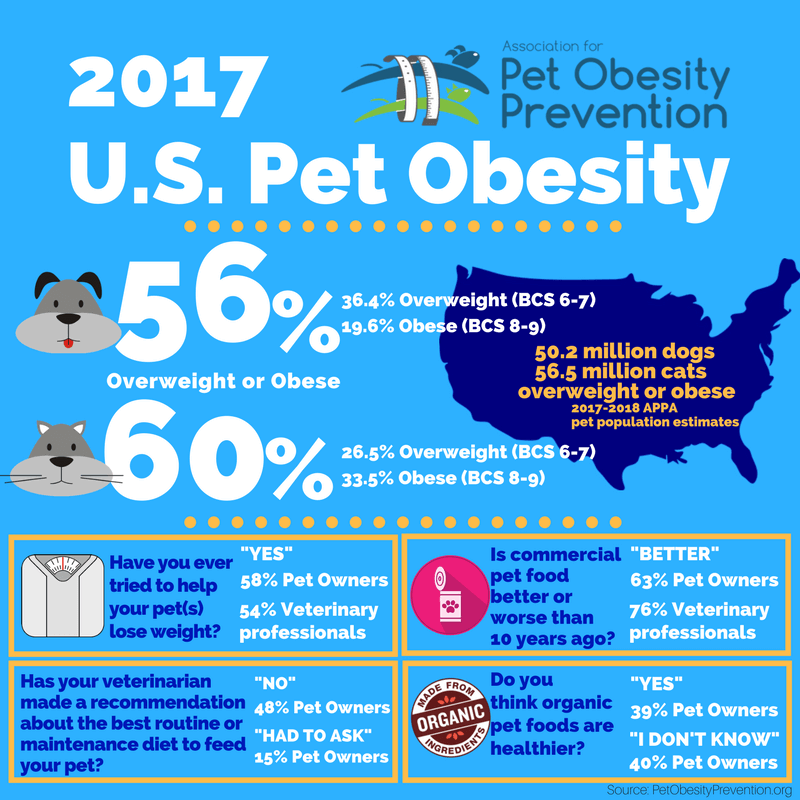
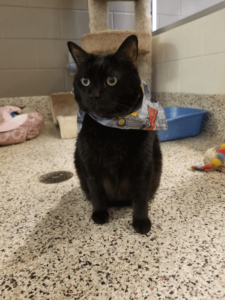
If you’re wondering whether your pet is a part of these shocking statistics, a simple inspection of your pet’s body shape may give you the answers you need. Start by feeling their midsection while they are standing. You should easily feel their ribs and spine, though not excessively, and their waist should have a slight hourglass shape. If you notice your pet’s body shape is more ‘tubular,’ it’s time to visit your veterinarian (PetMD).
There are many reasons your pet may have packed on the pounds, but it likely boils down to four main causes: (1) Predisposed breed; (2) Preexisting medical conditions, such as hypothyroidism, arthritis, joint issues or Cushing’s disease; (3) Feeding methods and type of food; (4) Lack of prevention care, such as exercise (Banfield Pet Hospital).
Side note: It is a myth that spaying or neutering your pet will cause them to gain weight.
Pet obesity is not something to take lightly, as it can result in health issues in nearly all of your pet’s organ systems, joints and ligaments. Heart, digestive and respiratory issues, damage to bones and joints, heat intolerance, decreased stamina and liver function, diabetes, digestive disorders, higher risk of cancer, decreased length of life, lower immune function, skin and coat problems and urinary tract infections are all side effects of pet obesity.
If you’re nervous that your pet is overweight and on the road to major health issues, do not simply overexercise them or drastically cut their food, which can also drastically cut essential vitamins and minerals they need to live a healthy life. Instead, always consult a veterinarian first about a weight-loss and exercise plan that is unique to your pet’s situation.
If you’re looking for an affordable veterinarian to assist with pet obesity, or other conditions, be sure to check out the SPCA Albrecht Center’s full-service, high-quality Veterinary Care Center. We are dedicated to getting your companions on track for a long, happy and healthy life with you.
An Aiken native and self-proclaimed cat lady, Claire Roberson is the SPCA Albrecht Center’s Communications Director, working in marketing, grant writing and media correspondence. She attended College of Charleston, where she graduated with a degree in Nonprofit Business and interned with Charleston Animal Society, the leader in No-Kill South Carolina. When not working, you can find Claire hanging out with her 18-pound Maine Coon mix, Anakin.
The SPCA Albrecht Center for Animal Welfare is a private, nonprofit, no kill animal shelter in Aiken, SC. The SPCA also operates a local Thrift Store (“Where Shopping Saves Lives”), a public, affordable Veterinary Care Center & a Dog Park. It is our mission to improve the lives of companion animals by rehoming abused, abandoned, and neglected pets while fighting for their well-being through vigorous legislative efforts, humane education, and by offering affordable veterinary care for all.
WANT TO SUPPORT OUR HOMELESS ANIMALS?
Sources:
Association for Pet Obesity Prevention: https://petobesityprevention.org/
Banfield Pet Hospital: https://www.banfield.com/pet-healthcare/additional-resources/article-library/everyday-care/exercise-and-its-role-in-treating-overweight-obesi
Pet MD: https://www.petmd.com/dog/nutrition/evr_multi_long_term_effects_of_obesity_on_pets
Pet MD: https://www.petmd.com/dog/nutrition/evr_dg_identify_overweight_pet

